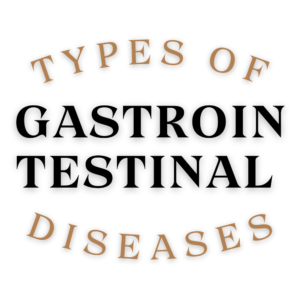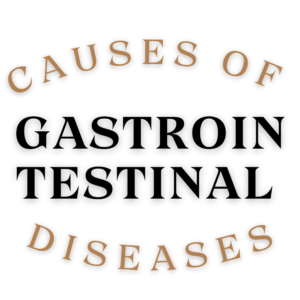What is Gastrointestinal Diseases ?
Gastrointestinal (GI) diseases are problems that affect the digestive system, which includes the stomach, intestines, liver, and other organs involved in processing the food we eat. Gastrointestinal (GI) diseases refer to a group of disorders that affect the digestive system, which includes organs such as the esophagus, stomach, small intestine, large intestine (colon), liver, gallbladder, and pancreas. These diseases can range from mild to severe and may involve various symptoms and complications.
Gastrointestinal Diseases: Types
Here are the few Types of GI diseases explained in simple language:
Gastritis: This is when the stomach lining becomes irritated or inflamed. It can happen if you eat spicy or acidic foods, or if there’s an infection. It might cause stomach pain or discomfort.
Gastroenteritis: Often called the stomach flu, this is an infection in the stomach and intestines. It can cause diarrhea, vomiting, and stomach cramps. It’s usually caused by viruses or bacteria.
Peptic Ulcers: These are sores that develop on the inside lining of the stomach, small intestine, or esophagus. They can cause burning stomach pain. Stress and certain medications can contribute to their development.
Inflammatory Bowel Disease (IBD): This is a group of conditions, including Crohn’s disease and ulcerative colitis, where the digestive tract becomes chronically inflamed. Symptoms may include abdominal pain, diarrhea, and weight loss. 
Irritable Bowel Syndrome (IBS): This is a functional disorder of the digestive system. It can cause abdominal pain, bloating, and changes in bowel habits without any apparent damage to the digestive organs.
Gallstones: These are hard particles that form in the gallbladder, a small organ under the liver. They can cause pain in the upper abdomen and sometimes block the flow of bile.
Celiac Disease: This is an autoimmune disorder where the ingestion of gluten leads to damage in the small intestine. People with celiac d isease need to avoid gluten-containing foods.
Constipation: This is when bowel movements become infrequent or difficult. It can be caused by a lack of fiber in the diet, dehydration, or certain medications.
Pancreatitis: Pancreatitis refers to the inflammation of the pancreas, which can manifest as either acute or chronic. It often leads to abdominal pain, nausea, and digestive issues.
Diverticulitis: Inflammation or infection of small pouches (diverticula) that can form in the walls of the colon. This condition can cause abdominal pain and changes in bowel habits.
Cirrhosis: Progressive scarring of the liver, often resulting from chronic liver diseases, such as hepatitis or alcohol abuse.
Gastrointestinal Bleeding: Can occur in various parts of the digestive tract and may be caused by conditions such as peptic ulcers, colorectal polyps, or inflammatory bowel disease.
Gastrointestinal Diseases: Symptoms
The symptoms of gastrointestinal (GI) diseases can vary widely depending on the specific condition and its severity. However, some common symptoms associated with GI diseases include:
Abdominal Pain: Pain or discomfort in the abdominal area is a common symptom of many GI conditions. The location, intensity, and nature of the pain can vary.
Heartburn or Indigestion: A burning sensation in the chest or upper abdomen, often occurring after eating or when lying down, can be indicative of conditions like GERD or gastritis.
Nausea and Vomiting: Persistent nausea or recurrent vomiting may be associated with various GI disorders, including gastroenteritis, pancreatitis, or bowel obstruction.
Changes in Bowel Habits:
- Diarrhea: Frequent, loose, or watery stools may be a symptom of conditions such as IBD, infections, or malabsorption disorders.
- Constipation: Difficulty passing stools or infrequent bowel movements can be indicative of issues like irritable bowel syndrome (IBS) or obstruction.
Bloating and Gas: Excessive gas production and feelings of abdominal bloating can occur in conditions like IBS or lactose intolerance.
Blood in Stool: Visible blood in the stool or dark, tarry stools can indicate bleeding in the digestive tract, which may be associated with conditions such as ulcers or colorectal polyps.
Unexplained Weight Loss: Significant and unintentional weight loss without changes in diet or physical activity may be a concerning symptom of various GI disorders, including celiac disease, Crohn’s disease, or cancer.
Difficulty Swallowing: Dysphagia, or difficulty swallowing, may be a symptom of conditions affecting the esophagus, such as GERD or esophagitis.
Jaundice: Yellowing of the skin and eyes can occur in liver-related conditions, such as hepatitis or cirrhosis.
Fatigue: Persistent fatigue may be associated with chronic GI conditions that affect nutrient absorption, such as celiac disease or inflammatory bowel disease.
Gastrointestinal Diseases: Causes
Gastrointestinal (GI) diseases can have various causes, and the specific factors depend on the type of disease. Here are some common causes associated with different GI conditions:
Infections: Viruses, bacteria, parasites, and other microorganisms can cause infections in the gastrointestinal tract. Gastroenteritis, for example, is often caused by viral or bacterial infections.
Inflammation: Chronic inflammation is a common factor in many GI diseases. Conditions like inflammatory bowel disease (IBD), including Crohn’s disease and ulcerative colitis, involve ongoing inflammation in the digestive tract.
Autoimmune Reactions: In some cases, the immune system may mistakenly attack the cells of the digestive system, leading to autoimmune diseases like celiac disease or autoimmune hepatitis.
Genetics: Certain gastrointestinal conditions, such as hereditary polyposis syndromes or familial adenomatous polyposis (FAP), can have a genetic component, making individuals more prone to developing these diseases if they have a family history.
Dietary Factors: Poor dietary habits, including low fiber intake, high intake of processed foods, and inadequate fluid intake, can contribute to conditions like constipation, diverticulitis, and colorectal cancer.
Medications: Long-term use of certain medications, such as nonsteroidal anti-inflammatory drugs (NSAIDs), can increase the risk of gastrointestinal issues, including peptic ulcers.
Gastroesophageal Reflux: The weakening of the lower esophageal sphincter can lead to gastroesophageal reflux disease (GERD), where stomach acid flows back into the esophagus, causing irritation and inflammation.
Gallstones: Hardened deposits in the gallbladder can lead to gallbladder inflammation (cholecystitis) and cause abdominal pain.
Alcohol and Substance Abuse: Excessive alcohol consumption can lead to liver diseases such as cirrhosis, while substance abuse may contribute to various GI issues.
Stress: While not a direct cause, stress can exacerbate symptoms of certain GI conditions, such as irritable bowel syndrome (IBS).
Structural Abnormalities: Congenital or acquired structural abnormalities in the digestive organs can contribute to conditions like diverticulosis, hernias, or strictures.
Age and Hormonal Factors: Some GI conditions, like colorectal cancer, may have higher incidence rates in certain age groups, and hormonal factors can influence conditions such as gallbladder disease.
Gastrointestinal Diseases : Ayurvedic Treatment
Pachan Fatafat Capsule : Pachan Fatafat Capsule is an exceptional blend of Harad, Trivrit, Swarn Patri, Amaltas, Saunf, Sounthi, Mulethi, and Kutki. It effectively alleviates Indigestion, Constipation, Acidity, Gastric Ulcer, IBS, Gastritis, and various other Stomach problems. This capsule aids in enhancing the overall digestive well-being of your body. 


